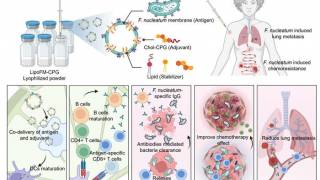National Prostate Cancer Awareness Focuses on Detection & Treatment

Throughout National Prostate Cancer Awareness Month of September, ‘we reaffirm our commitment to bring attention to prostate cancer and to better understand the risk factors and early symptoms of this horrible disease,’ said the White House in a recent press statement.
Since 2015, when September was designated National Prostate Cancer Awareness Month by the Obama Administration, the White House has ‘renewed our Nation’s pledge to diligently work to find a cure,’ said this September 1, 2019, statement.
This annual pledge is important since prostate cancer is the 2nd leading cause of cancer deaths for men in America.
The American Cancer Society’s estimates prostate cancer-related fatalities in the United States for 2019 will exceed 31,000 men.
Prostate cancer, however, is detectable and treatable.
Private PSA Test available from Ulta Labs
According to the White House, men diagnosed with a localized or regional stage of prostate cancer have a nearly 100 percent 5-year Relative Survival Rate.
It is critical for men of all ages to become familiar with the common signs and symptoms of prostate cancer and to immediately report concerns to a healthcare provider.
‘We are also committed to learning about the common warning signs of prostate cancer and sharing this information with family and friends.’
‘Through our collective efforts, we can assist in the early detection and diagnosis of this disease, leading to more optimistic prognoses for our loved ones,’ said the White House.
The Centers for Medicare & Medicaid joins Prostate Cancer Awareness Month by highlighting the importance of early detection. CMS provides coverage of 2 screening tools for the early detection of prostate cancer for eligible beneficiaries.
However, Prostate cancer screening in healthy men has some controversy and risk.
According to the National Cancer Institute, the following risks of prostate screening include:
- Finding prostate cancer may not improve health or help a man live longer.
- Follow-up tests, such as a biopsy, may be done to diagnose cancer.
- False-negative test results can occur.
- False-positive test results can occur.
The PSA blood test must be ordered by the patient’s physician or qualified non-physician practitioner. Both screenings are covered under Medicare as a Part B benefit.
The DRE must be performed by a physician or non-physician practitioner who is authorized under state law to perform the examination.
Additionally, a Food and Drug Administration (FDA) approved prostate cancer is now available in the USA. The FDA published these questions and answers regarding Provenge in March 2018:
What is PROVENGE and how does it work?
- PROVENGE (sipuleucel-T) is an autologous cellular immunotherapy designed to stimulate a patient’s own immune system against cancer. PROVENGE is manufactured in several steps.
- First, the patient’s blood is run through a machine in a process known as leukapheresis. During the process, some of the patient’s immune cells are collected. These immune cells are then exposed to a protein intended to stimulate and direct them against prostate cancer.
- Following this exposure, the activated immune cells are then returned to the patient to treat prostate cancer.
- PROVENGE is administered intravenously in a 3-dose schedule at approximately two-week intervals. Each dose is preceded by the leukapheresis procedure approximately 3 days prior to the scheduled treatment and is administered only to the patient from whom the cells were obtained.
What type of cancer will PROVENGE treat?
- PROVENGE is specifically indicated for the treatment of asymptomatic or minimally symptomatic metastatic castrate-resistant (hormone-refractory) prostate cancer.
- The indication for use was approved based on the specific population studied in the clinical trials, which were patients who had minimal or no symptoms such as pain caused by cancer.
Can I receive other treatments while being treated with PROVENGE?
- The use of either chemotherapy or immunosuppressive agents (such as systemic corticosteroids) given at the same time with the leukapheresis procedure for PROVENGE has not been studied.
- PROVENGE is designed to stimulate the immune system, and using immunosuppressive agents at the same time may alter the effectiveness and/or safety of PROVENGE.
- Therefore, patients should be carefully evaluated to determine whether it is medically appropriate to reduce or discontinue immunosuppressive agents prior to treatment with PROVENGE.
Why didn’t FDA approve PROVENGE previously, and why is FDA approving it now?
- The product was discussed at a meeting of FDA’s Cellular, Tissue and Gene Therapies Advisory Committee in March 2007. Following the meeting, and after FDA completed its review of Dendreon’s Biologics License Application (BLA), the FDA determined that there were deficiencies in the application that precluded approval and issued a Complete Response Letter to the firm.
- Dendreon Corporation, the manufacturer of PROVENGE, conducted an additional study and issued a press release describing the results from its pivotal phase 3 study of PROVENGE on April 14, 2009.
- The firm then filed an amendment to its BLA to include this new data, and the FDA has now completed the review of that submission. Based on our review, the FDA determined that Provenge is safe and effective.
How was the efficacy of PROVENGE established?
- The effectiveness of PROVENGE was studied in 512 patients with metastatic castrate-resistant (hormone-refractory) prostate cancer in a randomized, double-blind, placebo-controlled, multicenter trial.
- The study showed an increase in overall survival of approximately 4 months for patients receiving PROVENGE treatments as compared to the control group.
- And recently, Dendreon announced on September 4, 2019, the publication of results from its PROCEED registry, which evaluated real-world use of PROVENGE in men with asymptomatic or minimally symptomatic metastatic castrate-resistant prostate cancer (mCRPC).
- This study’s findings, published in Cancer, showed that men with mCRPC who were treated with PROVENGE when their PSA was <5.27 ng/mL had a median survival of nearly 4 years.
- “The median survival of 4 years following treatment with PROVENGE is meaningful,” said Celestia S. Higano, M.D., FACP, lead author of the PROCEED analysis, and professor, Division of Medical Oncology, Department of Medicine, University of Washington School of Medicine and Fred Hutchinson Cancer Research Center.
- Notably, 44 percent of patients in this study with a PSA of <5.27 ng/mL did not receive any additional cancer treatments for at least 1 year.
- Of those, 95 percent were treated with PROVENGE as first-line therapy for mCRPC as recommended by the National Comprehensive Cancer Network.
To obtain information pertaining to drug and radiation therapies used to treat prostate cancer, we encourage you to contact your oncologist to discuss all of your treatment options.
The National Cancer Institute also has additional information on cancer treatments on its website.
Published by Vax Before Cancer
Our Trust Standards: Medical Advisory Committee
- Presidential Message on National Prostate Cancer Awareness Month
- Prostate cancer screenings
- US FDA: Questions and Answers - Provenge
- Largest Real-World Study of Immunotherapy Shows Men with Advanced Prostate Cancer with Low PSA had a Median Survival of Nearly
- Provenge® (Sipuleucel-T) Active Cellular Immunotherapy Treatment of Metastatic Prostate Cancer After Failing Hormone Therapy
- PROvenge Treatment and Early Cancer Treatment (PROTECT)
- A Registry of Sipuleucel-T Therapy in Men With Advanced Prostate Cancer (PROCEED)


























